Izrael and Nalu team up for their brand new song and video titled “Patali“.
The video was shot Qbick The Visual Papi while the song was produced by Kekero and Izrael.

The Drug Enforcement Commission (DEC) in Western Province has arrested a 55-year-old man of Mulobezi District for unlawful cultivation of cannabis plants.
OSCAR KAYAMBILA, a small-scale farmer of Ntangeza village in Mulobezi has been arrested for unlawful cultivation of cannabis plants intercropped with maize.
Drug Enforcement Commission (DEC) Public Relations Officer THERESA KATONGO confirmed to ZNBC News in LUSAKA yesterday.
Ms KATONGO has caution the public that despite the approval of the cultivation of marijuana for medicinal and economic purposes in Zambia, the DEC still has a mandate of arresting persons cultivating cannabis outside the legal provisions.
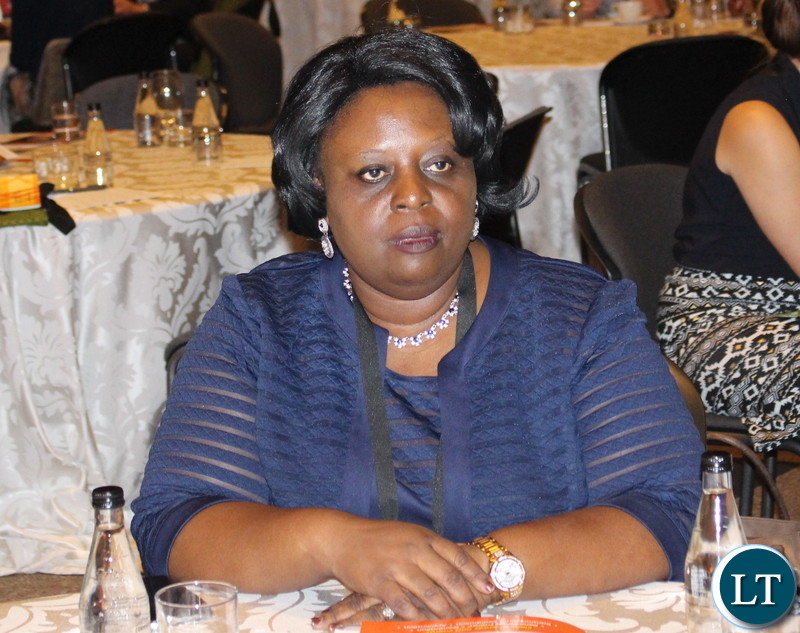
The Energy Regulation Board (ERB) has refuted reports that electricity tariffs have been increased by 200%
ERB Executive Director Langiwe Lungu has said that the average of the entire adjustment is 113%.
Ms. Lungu said that the increment is for all categories of customers which are residential, commercial, social and maximum demand.
She says the increment has been effected after intense and extensive consultations with stakeholders.
Ms. Lungu said that the board held public hearings, consulted with the government whose policy is to move towards cost-reflective tariffs.
She further explained that the adjustment is also meant to ensure that ZESCO remains commercially viable because it buys power from Independent Power Producers such as Maamba collieries and Coppeberlt Energy Corporation at a higher price and sells at a less price.
Ms. Lungu was speaking at a media briefing in Lusaka yesterday.
Meanwhile, ERB Director Economic and Regulation Alfred Mwila said under the new tariffs for residential use the line tariff has been reduced to one hundred units.
And, Mr. Mwila said the increment in fuel prices is to ensure that there is no shortfall in meeting obligations to the suppliers because the price is determined based on how much the cargo was purchased at.
He said the appreciation of the kwacha was at the end of the circle in the procurement process.
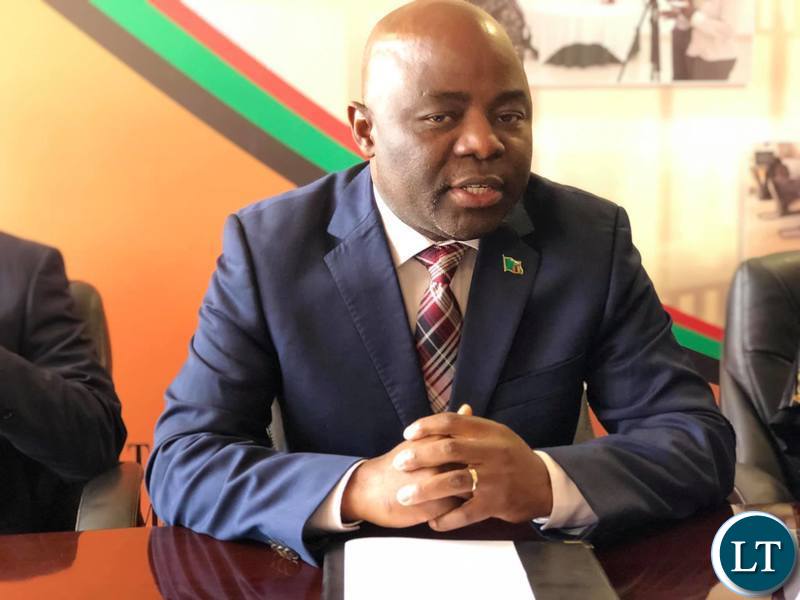
The government has described as fake reports that passport fees have been increased.
Acting Information Minister Stephen Kampyongo says the information circulating on social media is fake and those circulating the information it on social media must stop alarming the public.
And Mr Kampyongo has directed relevant security institutions to trace the purveyors of the false information on the passport fees.
Mr Kampyongo, who is also Home Affairs Minister, says the news is fake from people bent at causing unwarranted public anxiety.
He explained that passport fees are statutory fees, which are not just announced but backed by a Statutory Instrument.
Mr Kampyongo said in a statement that the passport fees have remained the same.

The number of firms signing up for investment in Luapula Province following the Luapula Expo has continued to rise.
According to Luapula Province Minister Nickson Chilangwa 10 new companies have arrived in the Province in the last 12 months, bring the total to 110.
Mr. Chilangwa said this during his end of year press briefing at Mansa Lodge Friday morning.
The event was attended by Luapula Province Permanent Secretary Dr Felix Phiri, Luapula Deputy Permanent Secretary Royd Chakaba, Heads of Government Departments and parastatals and journalists from various media institutions.
The Minister named the companies as Workers Compansation Fund Control Board, Consolidated Farming Limited, Sable Group of Companies, Evolve Group of Companies and Aquakena Bottling Company.
Others are Pearl Beverages, Agri Horti Fruits Limited, Chihasha Industries, White Orchid Limited and Global Human Benefit Zambia.
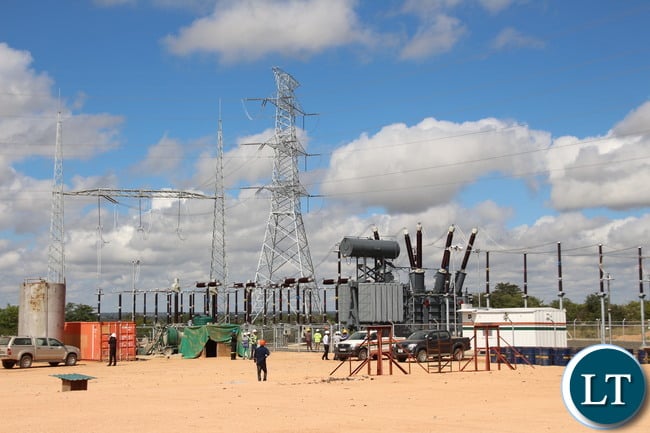
There has been a public outcry over fuel and electricity hikes announced by ERB. The PF government is cognisant of the impact the price hikes will have on the consumer and the economy at large. The depth of challenges in the energy sector can not be overemphasized and should not be politicized.
In order to guarantee self-sustainability in the energy sector, the government has adopted a non-subsidy but the cost-reflective approach in running ZESCO and other parastatal entities. The reliance on subsidies has put pressure on Treasury and indirectly the economy as resources meant for socioeconomic development were being channeled to subsidize costs.
In order to have a cost-reflective electricity regimen, ZESCO needs to increase its tariff. This, in turn, will open up the sector’ to more investment and subsequently lower rates.
The tariff hike by ZESCO is meant to among other things cover operation and maintenance costs, taxes, improve generation and distribution and cover inflation pressure.
On the bright side, ZESCO has scrapped off it’s monthly fixed charges and reduced the 100-200kwh tariff from 0.89 to 0.85 kwacha for residential consumers.
The increase in fuel pump prices, has been necessitated by a weak kwacha at the time of importing the stock in October 2019. To mitigate the risk of loss, prices had to be adjusted upwards. The kwacha has been gaining against major foreign currencies and is expected to continue strengthening but the public must bear in mind the exchange rate which was obtained in October is key to the selling price of the stock obtained at that time.
Other factors affecting the price of fuel are the middlemen or transporters and oil marketing companies as well as the Tazama/Indeni facilities whose facilities are due for upgrades.
Going forward, the upgrading of Tazama oil pipeline to channel refined products such as diesel and petrol will result in reduced prices as the cost of transporting these products by road will be eliminated. Upgrading Indeni will also result in increased output and ability to process different types of crude oil even from neighboring countries such as Angola.
The government has also made it policy to have 30% of fuel on the market from clean and green sources. Biofuel from crops sub as hemp, cassava and sugarcane is being encouraged as a mitigate to the challenges.
Load shedding will soon be in the archives with the coming online of Kafue gorge lower hydropower station adding 750mw to the national grid beginning first quarter of 2020, Lusiwasi upper and lower with 15 and 85 megawatts respectively, Kabompo gorge CEC project with 40mw, GetFit solar project with 120mw, El Sawedi & Toyota Tsusho 100mw solar farms in western province, Universe 200mw solar project (135mw in Northern province and 65mw on the Copperbelt) as well as phase 2 with 300mw at Maamba power station.

Government says it has observed with amusement UPND Leader Hakainde Hichilemas growing frustration at the prospect of losing an election for the sixth time.
Acting Chief Government spokesperson Stephen Kampyongo says Mr Hhichilema knows that he is miles behind the Patriotic Front government and President Edgar Lungu’s support and popularity from the Zambian people ahead of the 2021 elections.
Mr Kampyongo said this is why Mr Hichilema has now taken to attacking innocent public operatives such as the ECZ Chairperson Justice Essau on unfounded and unmerited accusations.
He said Mr Hichilema is a dictator haunted by his own shadow of a serial loser.
Mr Kampyongo has warned Mr Hichilema to manage his political frustrations responsibly and avoid anything that brings him into conflict with the law.
He said Mr Hichilemas statement against Justice Essau Chulu as reported on his Facebook page and Twitter today is not only intimidating but but also tantamount to inciting citizens into civil disobedience against government.
Mr Kampyongo said the sentiments against Justice Chulu is the is the highest level of vanity where someone starts counting the chicks before they hatch.
“For once, let Mr Hichilema should be schooled and accept the reality that it is only the people of Zambia who have the power to decide who becomes the President for the country in an election.
He said Mr Hichilema should concentrate on selling his manifesto to the people of Zambia and avoid issuing intimidatory and threatening remarks against civil servants and government will not allow politicians to get away with such unfounded and unbecoming and dictatorial conduct.
Mr Hichilema says Zambia remains one of the shining examples of a stable and peaceful democracy and no amount of hunger for Power by the likes of Mr Hichilema should be allowed to dent this impeccable record.
And Mr Kampyongo has refuted reports circulating on social media that passport fees have been increased calling it fake news from fake elements bent on causing unwarranted public anxiety..
Earlier in the day, Mr Hichilema assured that anyone who will participate in rigging the next general elections will do so at their own peril.
He said severe prosecution, a possible prison sentence and a lifetime of shame awaits them.
“Mark my words, it will be the biggest mistake of your lives. We now have the necessary tools and the technical know how to watch you, and you will certainly not get away with it this time around”, he said.
“The way to win an election is to canvas for votes peacefully and honestly and ultimately let the will of the people reflect in their choice. Not vakuba, aikona man.
Don’t say you were not warned”, he added.
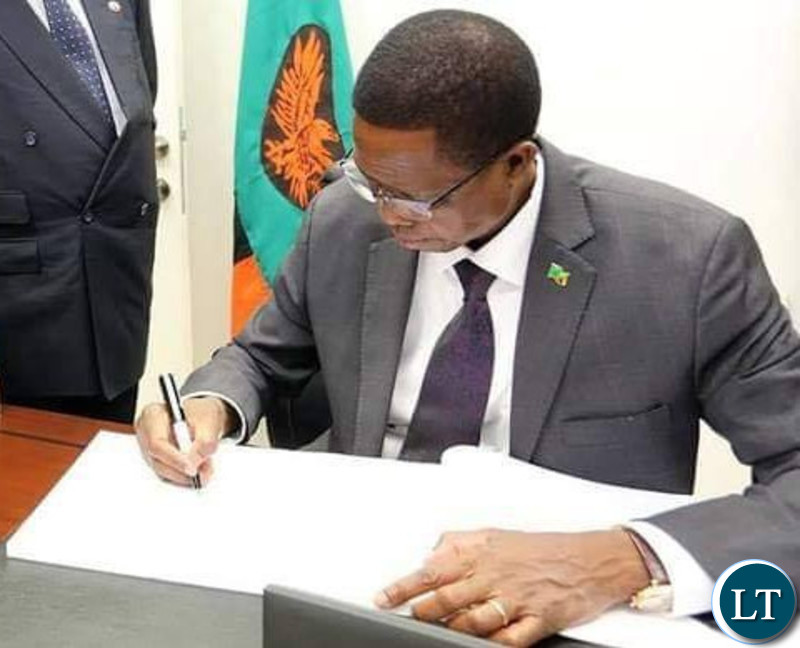
President Edgar Lungu has announced a reduction of his salary and that of his cabinet between a range of 15 and 20 percent; a move that comes barely 24 hours after the Energy Regulation Board announced a hike in both electrify tariffs and fuel prices.
The President has also directed the Secretary to Cabinet Dr. Simon Miti to cascade the directive to all Non Unionised Public Officers including parastatal executives.
The slashing of salaries of highly paid officers in both the government and the parastatal sector is aimed at cushioning the impact on citizens arising from the increase of fuel prices and electricity tariffs announced yesterday by the ERB.
The President said he fully understood the challenges that Zambians are facing but he is optimistic that the economy will rebound in 2020 due to the measures that government is putting in place, including the implementation of cost-cutting measures relating to travel of senior officials and protecting the vulnerable through ring-fencing the resources to social sectors.
On today’s directive, the President said public officers in the highest salary brackets will have their salaries cut by 20 percent whereas those in the middle will have their salaries reduced by 15 percent and those in the lower rung will be down by 10 percent.
The President said much as the increase in the pricing in the two essential commodities was inevitable, Zambians needed a cushion and hence the directive.
President Lungu said he has shown the way and those willing to work with him should be ready to sacrifice.
This is contained in a statement issued to the media by President Edgar Lungu’s Special Assistant for Press and Public Relations Isaac Chipampe.
Kitwe United chairman Emmanuel Numwa has announced his resignation from the post after differing with club owners Kitwe City Council.
Numwa took over as chairman from Gabriel Akayombokwa almost three months ago after being promoted from the position of treasurer.
Chingalika are facing financial challenges after the new council management cut funding to the club.
“I have put it officially, I am stopping and my last day is 31st December 2019.I think my ideology has been at variance with that of the sponsor so I wouldn’t want to have the team suffer because I am having problems with the sponsor,” Numwa said on Friday.
New Kitwe Town Clerk Mbulo Seke has reportedly told Kitwe to stop over dependence on council.
“I do fear for the future of the club that is why I want to remain as an ordinary member. You see people are not seeing the challenges of running a club like Kitwe United,” he said.
“It’s like a wedding, when they see people dancing they think it’s all rosy but what goes on behind the dancing they see is actuary a lot.“
“It is the same in sport, when people see the boys on the pitch they don’t know how much happens behind the curtains. It is not just finances it is also about skill and initiative that goes into running a club,” Numwa said.
Kitwe are second in the FAZ National Division One League with 29 points from 14 matches played.
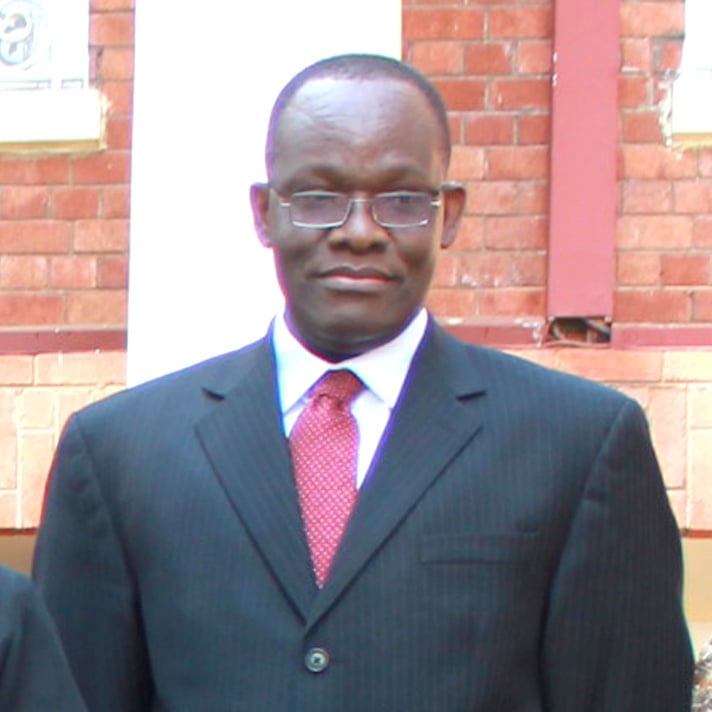
Government says it is looking into introducing empowerment reforms that will ensure that former inmates are accorded the chance to be employed in both the private and public sector.
Home Affairs Permanent Secretary Chileshe Mulenga says government has currently partnered with the Egyptian government in a joint project, to train inmates in correctional facilities, in productive skills.
Speaking in an interview with ZANIS in Lusaka today, Dr. Mulenga noted that the Zambia-Egypt Joint Project is an active effort, aimed at ensuring that former inmates who have performed very well in the skills development programmes, stand a chance of finding stable jobs, once they leave the correctional facilities.
Dr. Mulenga revealed that some farmers have gone ahead and hired former inmates who were trained under the Egypt joint venture farm project.
“We need to change the rules, formalize and encourage government as well as various stakeholders to employ former inmates once they have been rehabilitated and declared fit to return to society,” said Mr Mulenga.
He further explained that the reason why the perception was changed from prisons to correctional facilities, was aimed at showing that the aim for conviction was not just punishment but rehabilitation, so that inmates can be fit to return to society as productive law abiding citizens.
“Former inmates can only be productive if they can be employed, that’s why in correctional facilities they are given new skills so that when they get out they can find some productive employment either by self-employment or the private sector and as we go forward, even by the public sector,” he said.
And Mr Chileshe has also encouraged the Zambian people to kindness and render help to those being re-integrated into society.
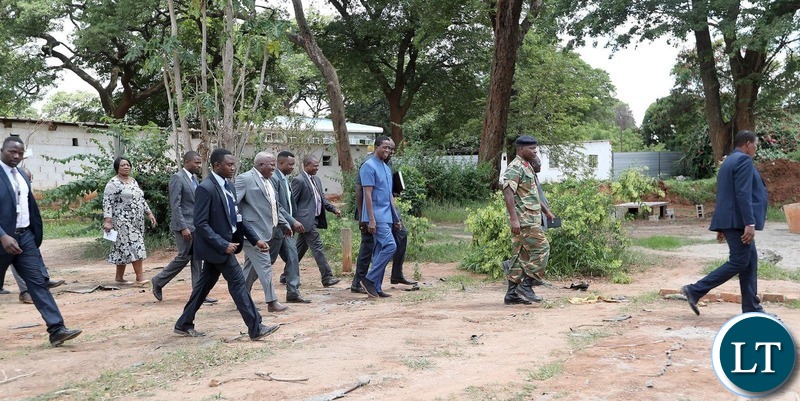
President Edgar Lungu has urged the Zambia Army and the Zambia National Service to expedite the construction of the National House of prayer in woodlands area in Lusaka.
The President says works should not stall in the initial stages saying this will prove to be expensive in future.
President Lungu said he was impressed with the progress being made towards constructing the National House of Prayer on Burma Road.
The President was briefed on progress by site Commander Colonel Mvula from the Zambia Army when he made an impromptu visit that construction works of the House will commence in January 2020.
The Church will be built by a combined team of Zambia Army and the Zambia National Service and the
President Lungu said Zambia is blessed to be a Christian nation and is determined to see the project complete because the house of prayer will galvanize Zambians.
The Energy regulation Board (ERB) says the decision to hike fuel prices was arrived at after wide and intense consultations from stakeholders.
ERB Executive Director Langiwe Lungu says the authority through its board made a decision to increase the pump prices for fuel with the cost of petrol going up by K1.64 per litre after wide consultations.
Speaking during a media briefing in Lusaka today, Ms Lungu said the ERB board looked at both local and international factors that surround the procurement of fuel.
And Ms Lungu has clarified that electricity tariffs will be increased for domestic and commercial consumers by 113 percent on average and not the 200 percent as reported in some sections of the media.
She explained that government being a major shareholder, ZESCO and consumers were widely consulted before approving the tariffs that will help the electricity company, operate efficiently.
The ERB Executive Officer underscored that her firm will in due course issue a comprehensive statement on the imminent electricity tariff upward adjustment.
Ms Lungu pointed out that despite 2019 being a challenging year to the energy sector due to climate change, her firm is supporting government’s initiatives of investing in other energy sectors such as solar energy.
“The Ministry of Energy procured 120 MW of solar comprising six projects of 20 mega watts each in 2019.As the regulator we are supporting this initiative by issuing investment endorsements and license waivers for importation of solar equipment where necessary for the dedicated projects. The ERB issued a total of 117 licenses during the course of 2019,” she said.
In her lengthy address to the media, Ms Lungu also disclosed that ERB collected over K177million non tax revenue payments through licence fees, from the initial 2019 target of K173 million.
Yesterday, the ERB announced an increase in pump prices effective today, and electricity tariffs hike for domestic and commercial consumers which will be effected on 1st January 2020

Opposition Movement for Multiparty Democracy (MMD) Muchinga Member of Parliament Hon Howard Kunda survived a road traffic accident last night.
The accident occurred on the Ndola-Kitwe Dual Carriage Way, near Baluba Motel.
This is when a truck identified as one belonging to Chat Breweries crossed lanes and hit into Kunda’s vehicle.
He is currently admitted in Ndola Teaching Hospital for observation.
Kunda is also the son to the late Vice President, George Kunda
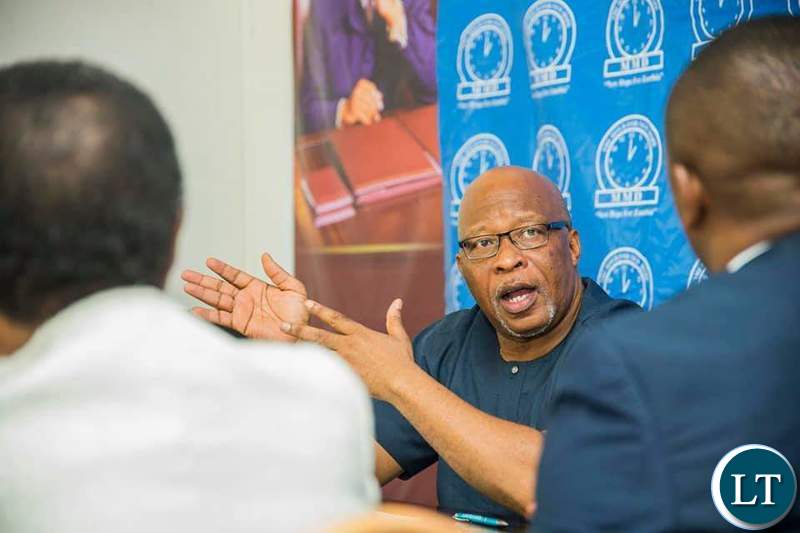
Movement for Multiparty Democracy (MMD) President Dr. Nevers Mumba has said that the MMD Convention would be held in 2020.
In reacting to Today’s Edition of the Daily Nation in which Former Republican Vice President Mr. Enock Kavindale challenged Dr. Mumba to call for an MMD Convention, Dr. Mumba said a convention in the MMD is a must.
“It is obvious that both the Daily Nation Newspaper, and my elder brother Hon. Kavindale have either not listened to any of our several efforts to explain this through interviews and press conferences, or have deliberately chosen to lend a deaf ear to our official position as a party. The MMD Convention is a well prescribed event in our political cycle which requires the completion of several activities in each Province such as Resource Mobilization, the elections of Ward, District and Provincial officials in readiness for the National Executive Committee to set a date for the National Convention”, Dr. Mumba said.
Dr. Mumba said that his a product of a Convention.
“I find it quite shocking when I hear that Nevers doesn’t want a Convention. Am a product of a Convention. In 2012, when we had a Convention, I as a returning diplomat stood against the biggest names in the then MMD like Hon. Kavindale, Hon. Mutati and Hon. Musokotwane, I emerged victorious”, Dr. Mumba said.
Dr. Mumba then said that the MMD Convention will be held in 2020.
“Never at anytime have I or any senior member of the MMD said that we will not have a party Convention. What we have repeatedly said is that we will hold the convention once the process of taking stock of our party and the preliminary arrangements leading up to the convention are done and this will be on a date, in 2020, to be announced by the MMD NEC”, Dr. Mumba said.
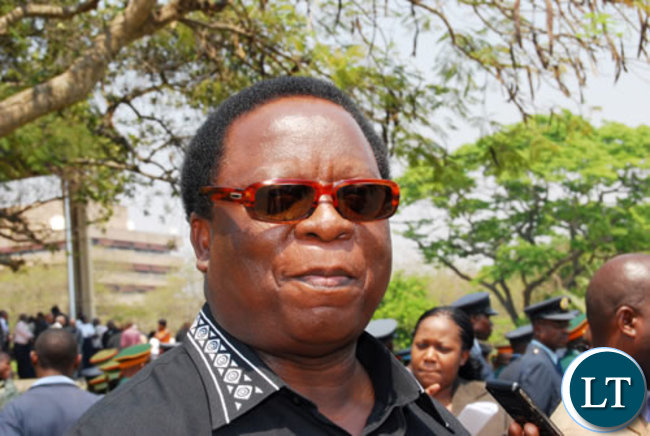
Meanwhile, Movement for Multiparty Democracy (MMD) Southern Province Chairman has challenged Former Republican Vice President Mr. Enock Kavindale to tell the Nation what he has done for Party since he lost the Party Presidency In 2012.
Zesco United defender Clement Mwape believes they will redeem themselves this Saturday against Zamalek of Egypt at Levy Mwanawasa Stadium in Ndola after losing to TP Mazembe in their last Group A home game.
Zesco return to continental action a fortnight after five-time champions Mazembe from DR Congo beat them 2-1 on December 7 at the same venue on match-day-two of the competitions’ league phase.
The result left Zesco trailing in third place without a win in Group A on 1 point, five behind leaders Mazembe and two drift of visiting Zamalek.
Angolan side Premiero de Agosto, who are last on one point, host Mazembe on Friday night in Luanda.
“We have been preparing adequately for the game. Zamalek is beatable, we just have to work hard because a win this weekend will motivate us about qualifying from the group,” Mwape said.
“If we look back at the Mazembe game, we did well but they utilized their chances which we didn’t do.
“But going into Saturday’s game, the fans should expect victory which I am very sure of.”
Zesco must get a positive home result this weekend knowing very well that the reverse fixture against Zamalek comes immediately on January 10 when the final countdown to the top two quarterfinal places heats-up.
Saturdays match will also be the debut meeting between Zesco and the five-time Africa champions.